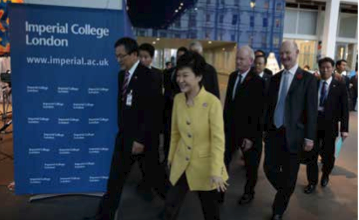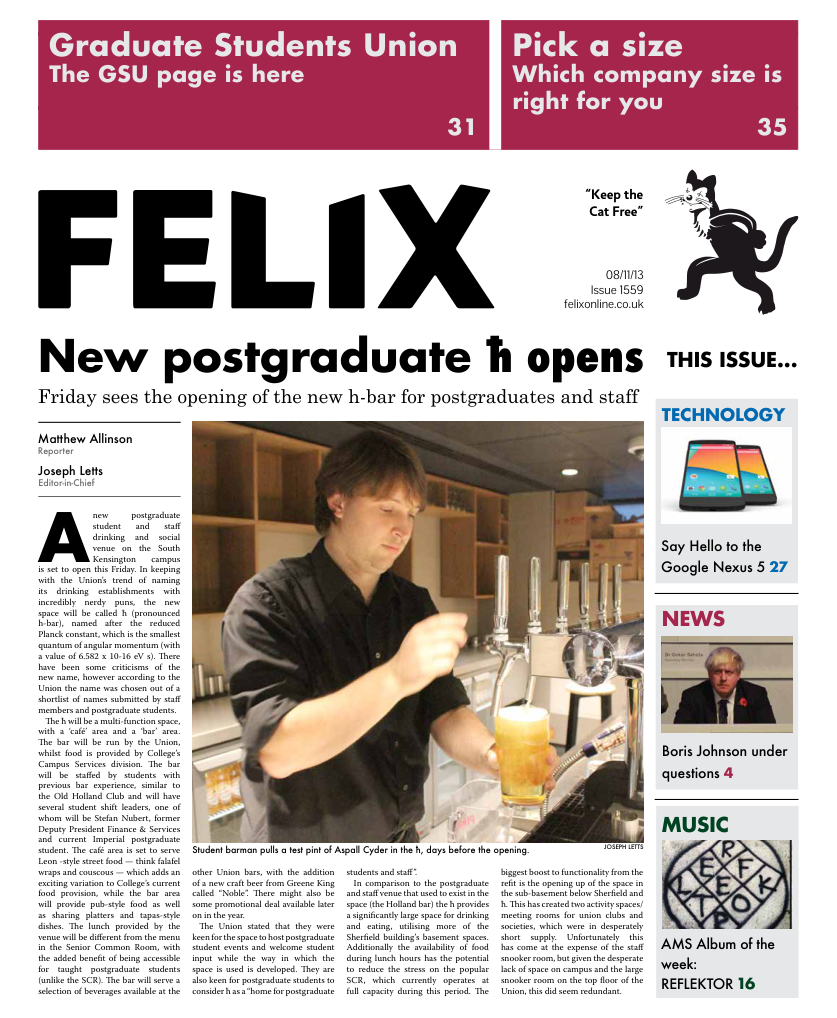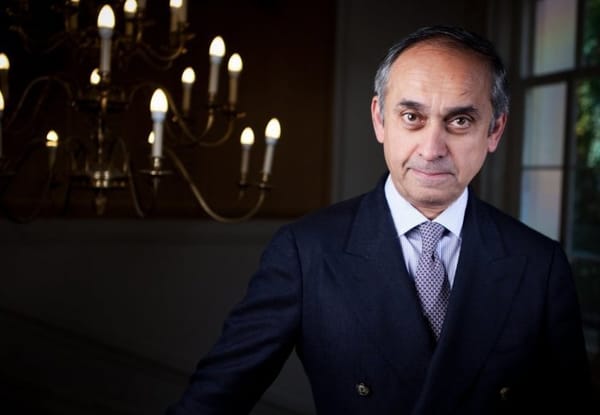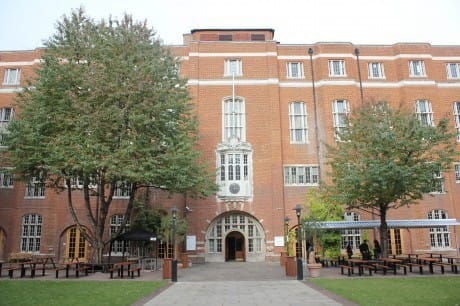President of Republic of Korea visits Imperial
On Wednesday November 6th, the President of the Republic of Korea, Park Geun-hye, came on a visit of Imperial College, in order to make a speech outlining her vision for scientific partnership with “leading scientific nations, such as the UK”.

On Wednesday November 6th, the President of the Republic of Korea, Park Geun-hye, came on a visit of Imperial College, in order to make a speech outlining her vision for scientific partnership with “leading scientific nations, such as the UK”. She gave her speech at the UK-Korea Creative Economy and Future Science forum, hosted by the college. Provost of Imperial College James Stirling said that the college were “honoured that President Park has chosen Imperial for such a significant part of her State Visit”. During her visit, President Park was given demonstrations of various pieces of ground breaking research, including an “invisibility cloak” using metamaterial technology. She also saw projects such as the latest robotic body sensing technology, plastic electronics and quantum technologies. These are fields where UK research is considered to be world leading. Science and Universities Minister David Willetts MP, who accompanied President Park on her visit to Imperial, said, “International collaboration across Higher Education is essential if the UK is to remain ahead in the global race for science and innovation.” He also added “Imperial College London is crucial to many of the eight great technologies including big data, robotics, space and synthetic biology. Working alongside the Republic of Korea will strengthen our relationship and allow greater collaboration in years to come.” The visit itself began with speeches from President Park, David Willetts and Professor Stirling, following which President Park was shown the research being presented. In addition to this, the event featured workshops for academics, investors and entrepreneurs from both nations to explore additional UK-Korean collaboration and development in fields such as future innovative technologies, digital cultural content, and cooperation among small and medium enterprises (including additional support for startups). In the lead up to the event, Imperial signed an agreement to enhance UK-Korean cooperation in developing hydrogen and fuel cell technologies. A Memorandum of Understanding was signed by Professor Stirling and Professor Taihyun Chang, Provost of Pohang University of Science and Technology (POSTECH) in Korea. Imperial’s Energy Futures Lab is the central hub for research into fuel cell technologies in the United Kingdom. Imperial is also due to sign a strategic partnership agreement with the Korean Institute of Science and Technology (KAIST). Imperial College already has a strong connection with Korean universities, having already attained extensive links with KAIST, POSTECH and Seoul National University. In addition to this Imperial also has strong links with Korean industry, having formed partnerships with Samsung and LG.








